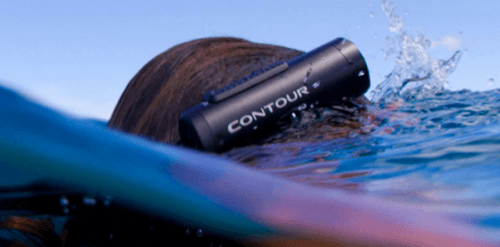Wearable World Congress, ReadWrite’s signature annual conference in San Francisco on May 19-20, will feature the key players who are shaping wearable technology and the Internet of Things. This series profiles some of the experts who will be speaking at the conference.
Business leaders may like to spin yarns about how their hot startups rocketed directly to the top, but in most cases, that couldn’t be further from the truth. Just ask Bia Sport’s Cheryl Kellond and James Harrison of Contour.
Kellond, Bia Sport’s CEO, learned the hard way that having a great product doesn’t guarantee success. The sports watch maker, known for devices that catered to female athletes, went under just last month. Contour, an action camera company based in Utah, learned that lesson as well. The company close its doors two years ago. But since then, Clarke Capital bought the assets out of receivership, resurrected the brand, reformed the product team, built a new team of executives (helmed by CEO Harrison), and put out a new product, the ROAM3, introduced last year. In light of that, and by its latest legal tussle against rival GoPro, Contour looks ready to do battle.
Buy tickets now: Wearable World Congress, May 19-20
Both Kellond and Harrison will appear at Wearable World Congress to share their insights and experiences in a panel called “The Life, Death, and Rebirth Of Your Wearable Startup.” I spoke to them, to find out more about the trials and tribulations they faced at Bia Sport and Contour.

What sticks out as a lesson learned from the hardships your company has faced?
Kellond: There’s no big “Aha!” like, “Wow, I wish we’d done this differently” or “Wow, we were really naive and stupid.” The wearable space is super competitive, and became so really quickly. We had trouble raising money early, which put our product behind. That meant, by the time we went to market, our coffers were depleted. It was an impossible combination. I should have quit much earlier but we had commitments to deliver the best device we could. So we went to Herculean lengths to do so.
Harrison: Contour was not initially keen to go into big box retail, which it was invited to go into by Walmart and others. The delay … really cost the company. Then it was time to catch up, which was very hard to do. There was inexperience within the company about how you go about scaling a company.
How important is managing initial expectations or launches?
Kellond: Don’t pre-sell. Do not pre-sell. Do not do it to fund it; just don’t do it. There’s no value from it. It only creates difficulties later on. It’ll put you in a hole. It’s never enough to convince a venture investor, because they view pre-sales as different from other sales. Don’t worry about being late to market. Every company is late. If you don’t pre-sell, then you have nothing to manage. I talked to two of my cohorts. Both raised very large seed rounds [for their companies]. They said the same thing. One of them pre-sold and her thought was, “That’s the dumbest thing I’ve ever done.”
Harrison: You need to hit your forecasts every single time. Cashflow always going to be tight. You need to make investors confident. If you miss being able to deliver to a retailer the stock that you promised, they just won’t come back. They’ll go to someone else. If you’re able to get it right, they come back and say, “We’d like to do a new product.” That’s when you get a virtual loop. The first few forecasts you do have got to be absolutely rock solid and sell through.

Is there anything you’d change about the product itself if you were doing things over again?
Kellond: No. We were really disciplined about hitting those needs. Nothing that happened along the way disproved that logic. What we set out to do, and the logic behind it, was the right thing to have done and the right fit with the market. We had that product/market fit.
Harrison: No. We, in a sense, were very lucky because we’re blessed with a great company. It’s a great brand. The way we looked at it… it’s almost like Apple in the late 90s, where someone who buys a Contour camera feels better because they think their camera is superior to all other cameras.
To hear more from Kellond, Harrison and other innovators and experts, register for Wearable World Congress 2015, May 19-20 in San Francisco. Early bird prices end soon!
Photos of courtesy of Cheryl Kellond, James Harrison and Contour

















